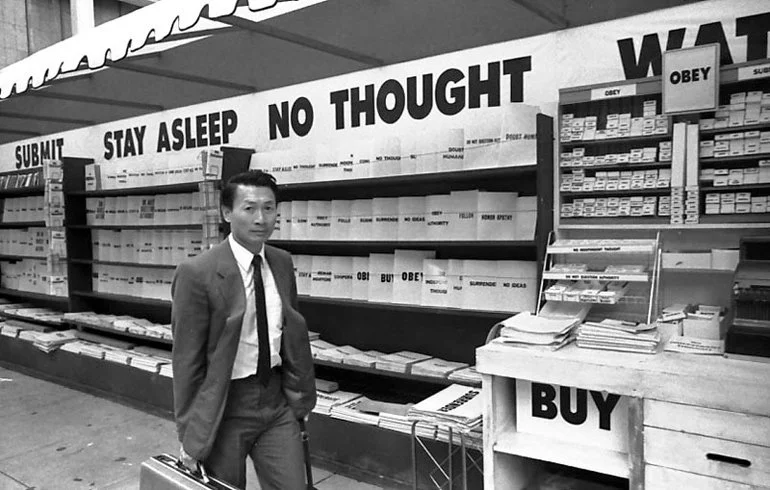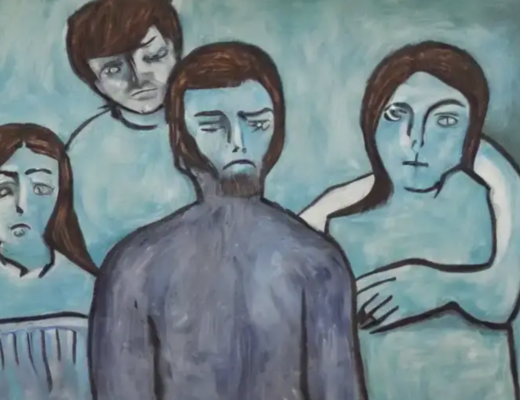In the past few months, we have featured several queer artists on our blog, only for trolls to clamour all over our socials with bile so blighted with spoon-fed contempt from the mainstream media’s bid to whip up some queer hysteria as a divide-and-conquer diversion tactic.
I also couldn’t help but notice the frenzy of ridicule which fell around the recent announcement that stirred around the Facebook post made by Loudwire on how Twisted Sister frontman, Dee Snider, is threatening to start painting his face again to oppose the drag show bans sweeping across the states. Although, after closer inspection, Facebook users felt inclined to whip out sarcastic laugh reacts for posts about any rock artist that didn’t present themselves with the uber-macho image that gels with their arrogant dogmatic views on how masculinity should be upheld.
Make-up and costumes are as much of a part of the rock and metal legacy as Gibson Les Pauls and Marshall stacks. Yet, now rock and metal fans seem to have the same tolerance as religious fundamentalists, assuming that the same kind of aesthetics rocked by Alice Cooper, GWAR, and Kiss are inclinations towards satanism or sexual proclivities nefarious enough to necessitate a prison sentence.
In the 70s and 80s, painted faces and outlandish costumes were an efficacious marketing tactic, guaranteed to tattoo the artists in the minds of the music-buying public looking for rebellion against the drudgery of normativity. Today, it is an invitation for the vanilla men that have never given their wives an orgasm to get all passive-aggressive in their angst that swells around the fact that they have lived their entire lives suppressing their individualism.
Queer Hysteria in the Music Industry
With the rise of social media and increased visibility of independent artists who want to visually express themselves in the way they believe reflects their art and identity, there has also been an increase in queer hysteria and reactionary disdain towards them in the same way schoolyard bullies take out their insecurities on people brave enough to go against the fray or just so happen to be a part of some form of a minority group. This social policing of conformity and prevalence of deeply problematic cognitive biases is making the music industry an inhospitable landscape for any creative that doesn’t don a conservative guise and paint within the lines of mundanity.
Of course, it all extends outside the realm of music, but this just so happens to be my wheelhouse as a genderqueer bisexual executive editor of a music blog who extensively studied queer theory as part of a degree that would make Jordan Peterson screw up his bitter vocal cords. And if we don’t allow musicians and other artists to push boundaries, we’re forever destined to be constrained by a reality which forces people to forgo their autonomy for the sake of fragile egos that thrive on the high of putting others down. Those pushing against the momentum of prejudice are quickly dismissed with incorrectly parroted words and phrases that exacerbate provincialism.
The Origins of Anti-liberal Rhetoric
I don’t know if there will ever be a day when people question why “wokeism” registers as a direct attack on the core of their being, but what I do know, is that it is far from an innate response. It is the result of intensive social conditioning from oppressive rulers who never want to see the fallout from the masses against the classes, and the subsequent reluctance to relinquish power and superiority dynamics.
Just take a look at the origins of some of the highly favoured antiliberal verbiage. The term woke started as an alert to racial discrimination and prejudice. It became commonplace in mainstream rhetoric in light of the Black Lives Matter movement in 2014. It is the same story with the word snowflake; in the 1860s, it was used in Missouri to refer to the people who opposed the abolition of slavery. Of course, it was later popularised by the film adaption of Fight Club in 1999, with the phrase, “You are not special. You are not a beautiful or unique snowflake”. Ironically, the ENTIRE premise behind the book and film was based on a crisis of masculinity. Funny how that just went full circle, isn’t it?
Article by Amelia Vandergast





No Comments